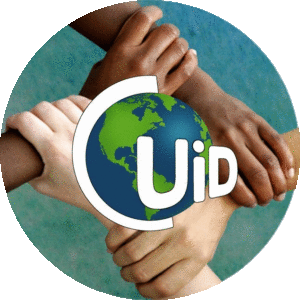Published: Katie Veitch and artwork by Ryan Ward
It is easy to assume that the world is becoming inevitably less religious, to see religion as an outdated set of superstitions which fall away as a country becomes richer, or its population more educated. However, this assumption is based narrowly on Western Europe’s experience of Christianity; looking at the dwindling congregations in English village churches should not translate to an assumption of a universal and inevitable secularisation. Given the ongoing importance of religion in the world, an effective sustainable development approach needs to consider religious actors.
Religion’s relationship with international development is complex. Indeed, even speaking of ‘religion’ acting as any kind of single or independent force can be difficult, given the diversity and multitude of religious people and institutions. Modern development has its roots entwined with such actors; Faith-Based Organisations (FBOs) are some of the most influential aid providers in the world. This includes Tearfund, Islamic Relief and CAFOD, amongst others. Even outside formal FBOs, religious people are central in development initiatives. Global faith leaders have long been powerful voices in championing human rights and development. On a more local level, humanitarian efforts are often picked up by religious actors, with a common theme within religious texts being duty towards those in need.
Arguably, the role of missionaries (especially Christians working in the British Empire) who established their own schools, churches and medical facilities in colonial states, created a certain model of aid which lingers today. The problems often discussed surrounding international aid – white saviourism, debt and difficult power dynamics – are a legacy of this colonial-missionary base. In light of this history, the secular development world can be hesitant about engaging with religion, either through FBOs or local groups. Religion is also avoided because of a perception that it upholds socially conservative norms. In some ways, this is a fair suspicion – clearly, certain religious texts are used to counter the rights of minority groups, and a development worldview based on universal human rights can be hard to reconcile with this.
So far, then, it is easy to see why a secular approach to international development would appeal. Yet when religion is excluded from the development conversation, important factors are disregarded. Religion is clearly an important part of identity, and religious leaders are figureheads in communities. Sustainable development is all about avoiding heavy-handed outsider approaches which ignore local nuances and do not involve relevant leaders. By engaging faith leaders in development projects, it is more likely that the development will be sustainable, that change will reach people in a way which is beneficial and long-lasting.
This has gained recognition in the international development world in recent years. In 2014, the World Bank committed to engage with religious leaders via the Faith Initiative, which bridges World Bank-funded projects and religious groups (1). Similarly, the UN now recognises the role of religious leaders in forming development policy, including consultations around the Sustainable Development Goals (2). Those working in international development need to put the specific needs and goals of a community centrally and listening to religious groups is an important aspect of this.
Whilst we can see this on a global scale, it is also key to consider the local level. Research into local projects, including a 2019 study commissioned by an NGO in Malawi comparing traditional development approaches to ‘church and community mobilisation’ (CCM) (3), show the development benefits of engaging with local religious groups. This particular study found that projects which mobilised through the church had the same benefit to quality of life as traditional approaches, but at a fraction of the cost. CCM emphasises a shift in mindset away from dependency and towards the community engaging in their own problem-solving, via Biblical reflection and participatory exercises. The church, because it is a central, trusted, and permanent presence in the community, promotes long-term and inclusive change. In this way, if we want to promote cost-effective and community-led development which moves away from an external, ‘white-saviour’ approach, engaging local religious groups and leaders is essential.
Ultimately, whilst those in the ‘West’ might assume that to be modern is to be secular, I would suggest this is far from true. Religion is not inevitably declining, and so should be considered and engaged with when we talk about international development and the power dynamics which surround it.
1 ‘Faith Based and Religious Organizations’ (World Bank) <https://www.worldbank.org/en/about/partners/brief/faith-based-organizations> accessed 10 November 2020.
2 Tomalin E, Haustein J and Kidy S, ‘Religion and the Sustainable Development Goals’ 15.
3 https://jliflc.com/resources/analysing-the-cost-effectiveness-of-church-and-community-mobilisation-in-malawi/



